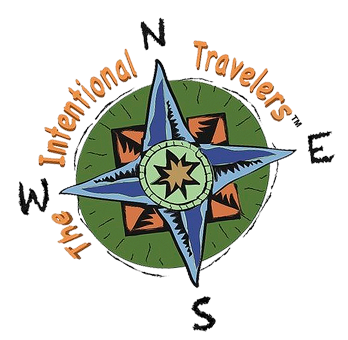What Binds Us Together Is Also That Which Separates Us The Most
There are a number of things about international travel that fascinate me and the one that intrigues me the most is how people have changed and adapted their language abilities to make it easier to understand each other. Without specific plans we are getting better at talking amongst each other all over the world.
There are a number of things that define who we are and our place in this world, like family, race, gender, geography and the groups and culture we associate with. There is however one characteristic that clearly identifies the largest group we belong to and it exists from soon after birth – that’s the language we speak. It not only identifies our group it isolates us from all other groups.
The Biblical story of the Tower of Babel in Genesis 11:1–9 is a prototypical origin tale to explain why the world’s peoples speak different languages.

In this story, the human race, after the Great Flood speak one language and move into the land of Shinar (Babylonia). There they decide to build a tower tall enough to reach heaven. God gets angry at the people’s arrogance and divides them with hundreds of different languages, making it impossible to work together and continue to build the tower. Their different languages make it so they can longer understand each other, and they scatter around the world into groups of using a common language.

The Tower of Babel story says a lot about how much language divides us and in the twentieth century that divide remains. There have been a number of movements to bring the world back together by returning us to a common language. One movement was Esperanto, a made-up language intended to become the worlds new common language. In 1954, the United Nations even granted official support to Esperanto as an international auxiliary language in the Montevideo Resolution and for a couple of years many American school districts introduced it as another foreign language. While some continue to hope for its acceptance into the 21st century it has lost more ground than it has gained.

When I was in high school we had to learn a foreign language and the recommendation was based on what we expected your future needs to be. If you were thinking about traveling widely or getting into international business or diplomacy you should study French. That was because there was a lot of thinking mid-century that French was likely to become THE international language. If you were studying science or mathematics you should learn German and, because it represented the language of the largest population segment in the western world, study Spanish.

Oddly, like most attempts to plan human society and organize people’s behavior all of those efforts have mostly failed. Sometimes something that seems of little significance has big importance. The International Air Transport Association (IATA) was established to support aviation with global standards for airline safety, security, efficiency and sustainability. One of their first policies was to select a common language for flight operations. That would allow pilots and air traffic controllers worldwide to easily understand each other – and they settled on English.


In addition to the seemingly misunderstood importance of decisions like the IATA there were also attempts to standardize road signage worldwide and a symbol collection was developed. Outside of these few successes most organized attempts at changing a populations language have failed. But the pure power of culture trumps centralized policy virtually every time. Worldwide culture began to homogenize by mid twentieth century without much recognition or understanding. By the sixties as you traveled you began to encounter people singing English rock and roll songs from Italy to Japan. By the seventies and eighties denim was becoming a fashion statement from Europe to Asia. Movie theaters everywhere showed mostly American films (often with subtitles or dubbed). By the end of the twentieth century the world wide web was connecting people everywhere together and without a plan English started becoming the cultural international language. As younger generations began to use English as the language to facilitate cultural sharing the notion of French or Esperanto being international languages became laughable.


In the last quarter of the twentieth century the worlds most watch television shows were “Baywatch” that was broadcast in 142 countries with 1 billion people watching and “The Cosby Show”. Both shows carried the number 1 rating in Canada, Australia and New Zealand and after international television syndication its distributor, Viacom, became a billion dollar media powerhouse. In the twenty first century the world’s three most popular TV shows were “Game of Thrones,” “Stranger Things” and “SpongeBob Squarepants”. A recent survey in Europe found that over half of internet video watching is in English.


As a young American in Europe in the sixties I can remember gatherings of young people where conversations were translated into three, four and five languages as they circled the group and people added to the discussion. Recently I witnessed something similar in France but the only thing that seemed to change as the conversation widened was the English accent. It didn’t happen by planning. It wasn’t what the world authorities wanted. The rise of English as a universal language just happened.
Next – Part 2 -The Darker Side of Language

